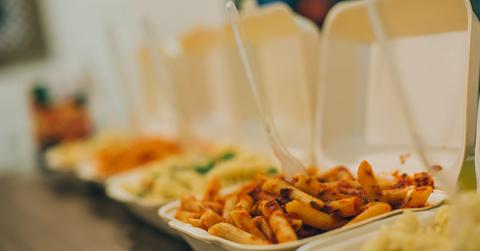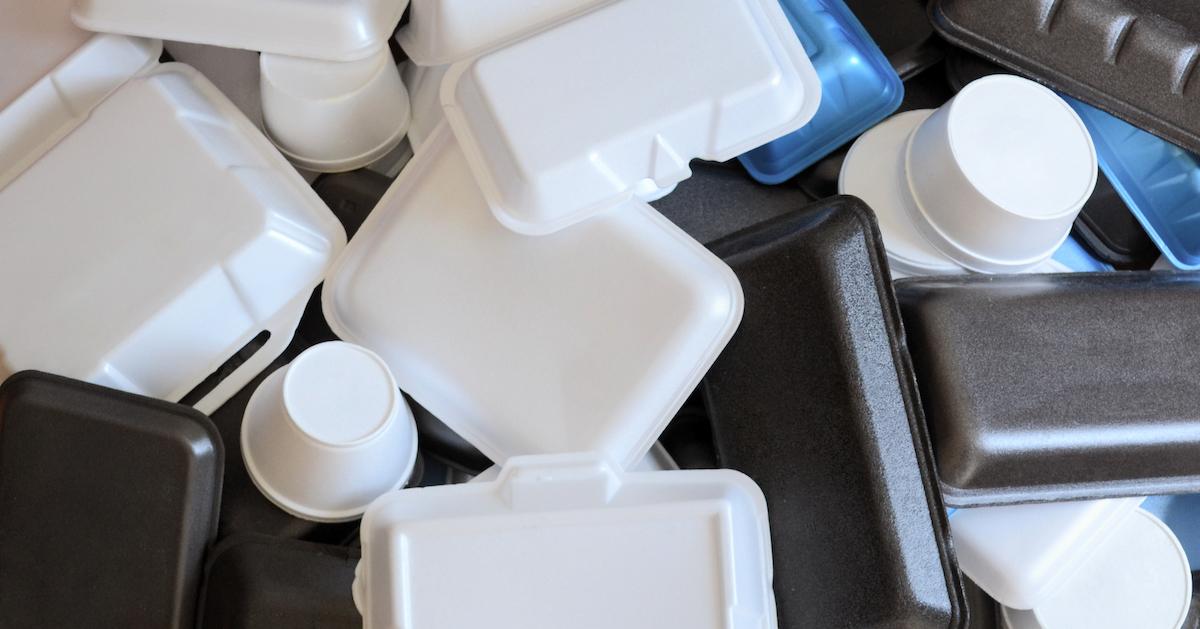Los Angeles Passes Ordinance Banning Polystyrene Containers
Published Dec. 8 2022, 4:08 p.m. ET

While customers making their own choices not to use single-use plastic can make a difference, it can be even more impactful when governments and businesses choose to ban these pollutive, disposable materials. For that reason, it’s pretty significant that Los Angeles just passed a bill banning polystyrene, often referred to as the brand name Styrofoam.
The new law also places tighter restrictions on using other kinds of single-use plastic across the City of Angels. Keep reading to learn all about the ban.

Los Angeles has passed a Styrofoam (polystyrene) ban.
As reported by The Los Angeles Times, on Tuesday, Dec. 6, the Los Angeles City Council voted to approve a proposed ban on polystyrene, following in the footsteps of places including Maryland, New York City, and San Diego, which just announced a polystyrene ban in November 2022.
According to the city ordinance, the new law will specifically “prohibit the distribution and sale of expanded polystyrene products commonly referred to under the trade name Styrofoam.”
The new law will begin to take effect on April 23, 2023, only impacting “large” restaurants, bars, and retail establishments with more than 26 employees.
One year later, on April 23, 2024, all other food service businesses, no matter their size, will have to comply with the new law, too.
The ban will focus on single-use polystyrene containers in the food industry. And as with most bans on environmentally-unfriendly materials, there will be a few exceptions to this new law. Businesses will be allowed to use polystyrene for things including:
- Surfboard packaging
- Coolers and other durable, reusable polystyrene items
- Packaging for medication or medical devices
- In the manufacturing of safety equipment
- For building materials
- Things packaged outside of Los Angeles
- In healthcare facilities or facilities for the elderly
- During local emergencies or disasters.
"Today, the second largest city in the nation will send a clear message that expanded polystyrene has no place in our city's future," LA Councilman Mitch O'Farrell stated on Tuesday, as reported by ABC7.
Los Angeles is also strengthening its single-use plastic bag ban.
On the same day, LA City Council members approved two other ordinances, which also seek to also help achieve LA’s goal of becoming a zero-waste city by 2050.
These other ordinances will: encourage residents to use reusable tote bags instead of single-use ones; manage the use of single-use shopping bags at various places across the city; strengthen parts of the city’s ban on single-use shopping bags; and force city departments to follow zero-waste operations, as per The Los Angeles Times.
Is polystyrene Styrofoam? Either way, it’s nothing but bad for the environment.
Expanded polystyrene refers to a synthetic polymer made by injecting air into petroleum. The material is widely known as Styrofoam, which is a company that produces polystyrene products — but it’s sort of a tissue/Kleenex thing. While all “Kleenexes” refer to tissues, not all tissues should technically be called Kleenex.
So anytime you see a Styrofoam-branded polystyrene container, you can call that Styrofoam, but the average polystyrene container technically is not Styrofoam, though that’s what most people will call it.
But no matter what you do call it, there’s nothing eco-friendly about polystyrene. It takes an estimated 500 years to degrade, as per the Green Dining Alliance. And during that process, it can discharge toxic chemicals into the environment; the manufacturing process of the material is also environmentally harmful, and produces planet-warming emissions, as noted by the Children's Environmental Health Network (CEHN).
The organization also notes that styrene is a potential carcinogen, and is released when polystyrene is heated, meaning the material can pose a risk to human health.
“Single-use plastic waste, specifically polystyrene, ends up in our creeks and canyons and reaches our beaches and the ocean and is physically present in the fish we eat,” San Diego Councilmember Joe LaCava told The San Diego Union-Tribune.
Whether or not there is a polystyrene ban where you live, check out our guide to taking home leftovers and takeout with zero waste.